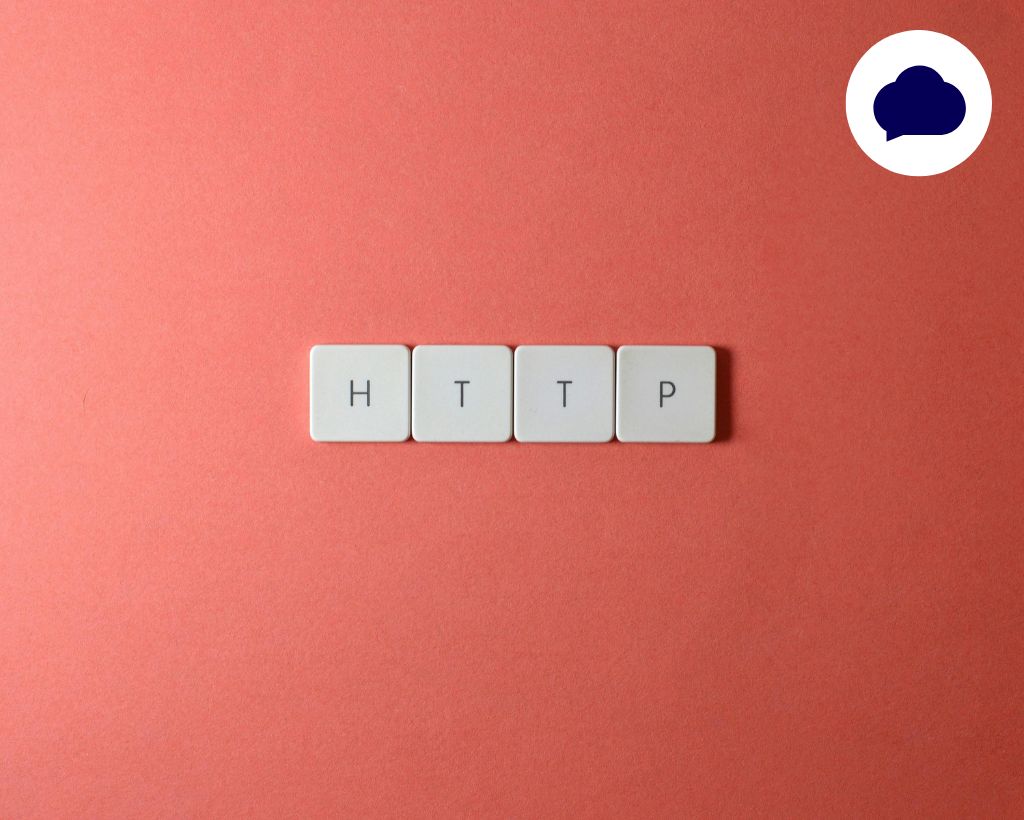
- 1. What is HTTP?
- 2. What is HTTPS?
- 3. Fundamental Differences Between HTTP and HTTPS
- 4. Why is HTTPS Important?
- 5. What is an SSL/TLS Certificate?
- 6. How to Transition from HTTP to HTTPS?
- Secure Web Infrastructure with PlusClouds
- Frequently Asked Questions (FAQ)
- Conclusion
When accessing websites, we notice two different protocols in the address bar: HTTP and HTTPS. While these two concepts may seem like just a few letters apart for most users, they actually form the foundation of digital security. The importance of HTTPS is undeniable, especially regarding the protection of personal data, online shopping security, and authentication.
In this article, we will explain the differences between HTTP and HTTPS in technical detail; we will discuss why HTTPS should be preferred with examples. You can examine our article titled What are HTTP, HTTPS, and SSL? for a more detailed discussion of this subject.
1. What is HTTP?
HTTP (HyperText Transfer Protocol) is the fundamental communication protocol that allows data exchange over the internet. All data exchange between your web browser and a web server occurs through this protocol.
Features of HTTP:
• Does not include encryption.
• Default port is 80.
• Fast but not secure.
• Data is transmitted as plain text between the browser and server.
These features make HTTP usable for content that does not require security (e.g., blogs or news sites). However, it creates a significant security vulnerability in environments where sensitive information such as usernames, passwords, or credit card details are transmitted.
2. What is HTTPS?
HTTPS (HyperText Transfer Protocol Secure) is the secure version of HTTP. HTTPS works by adding the SSL (Secure Sockets Layer) or TLS (Transport Layer Security) protocol to the HTTP protocol. This ensures that the communication between the browser and the server is encrypted and cannot be read externally.
Features of HTTPS:
• Data is transmitted encrypted.
• Default port is 443.
• Provides authentication.
• Data integrity is maintained through SSL/TLS certificates.
• Users' data does not fall into the hands of third parties.
On a website protected by HTTPS, there is usually a lock icon on the left side of the address bar indicating that the connection is secure.
3. Fundamental Differences Between HTTP and HTTPS
| Feature | HTTP | HTTPS |
|---|---|---|
| Encryption | None | Yes |
| Certificate Requirement | Not required | Requires SSL/TLS certificate |
| Security | Low | High |
| SEO Advantage | None | Provides an advantage in Google rankings |
| Authentication | Not provided | Provided |
HTTPS protects both the site owner and the user. HTTPS is essential for e-commerce sites, platforms with membership systems, and all web projects that include forms.
4. Why is HTTPS Important?
Data Security: Data transmitted via HTTPS is encrypted. This prevents malicious individuals from accessing the data during transfer.
Authentication: Through SSL/TLS certificates, visitors can verify that the site they are connecting to is indeed the target site.
Search Engine Optimization (SEO): Google grants an advantage in rankings to sites using HTTPS.
User Trust: Websites that use HTTPS appear more trustworthy to users. This trust is essential, especially in shopping sites.
Data Integrity: HTTPS ensures that data is transmitted without alteration. It protects against man-in-the-middle attacks.
5. What is an SSL/TLS Certificate?
To operate the HTTPS protocol, an SSL/TLS certificate is required. These certificates encrypt the communication between the web server and the browser and provide digital identity verification.
Certificates are provided by trusted certificate authorities (CA). The types of certificates include:
• Domain Validated (DV): Provides basic-level security.
• Organization Validated (OV): Includes organizational verification.
• Extended Validation (EV): The highest level of security, the organization’s name appears in the address bar.
6. How to Transition from HTTP to HTTPS?
1. Purchase a reliable SSL certificate or use free alternatives like Let's Encrypt.
2. Install the SSL certificate on your web server.
3. Redirect all HTTP connections of your website to HTTPS.
4. Define the new HTTPS version in Google Search Console.
5. Make internal links, external links, and resource files (JS, CSS, images) compatible with HTTPS.
Secure Web Infrastructure with PlusClouds

PlusClouds provides a strong infrastructure for your digital projects with performance-focused server and cloud solutions. With features like high availability, automatic backups, load balancing, and flexible resource management, it is designed to meet the digital needs of businesses focused on growth.
While ensuring the security of your web applications is in your hands, PlusClouds serves as a reliable infrastructure provider that supports the smooth and uninterrupted operation of these applications with modern data center technologies and high-performance servers.
If you are looking for a scalable, fast, and reliable web infrastructure, you can evaluate the most suitable solutions for your business by checking the services of PlusClouds.
Frequently Asked Questions (FAQ)
1. Is it mandatory to use HTTPS?
Yes and no. The obligation varies according to the type of your site. However, due to user security, SEO advantages, and legal regulations, HTTPS has now become the default standard.
2. Are HTTPS sites completely secure?
HTTPS encrypts data transmission and enhances security, but it does not protect against malicious software, social engineering attacks, or vulnerable codes. Therefore, while HTTPS is necessary, it is not sufficient alone.
3. Do HTTPS sites work slowly?
In the past, HTTPS could run slightly slower due to encryption. However, today this difference is negligible. With modern hardware and software, the performance loss of HTTPS is minimal.
4. Are free SSL certificates secure?
Yes. Free certificate providers like Let's Encrypt also offer sufficient security. However, if more security and brand validation are needed, paid certificates should be preferred.
5. Does transitioning from HTTP to HTTPS affect SEO?
Yes, positively. Google prioritizes sites that use HTTPS in rankings. Additionally, secure connections enhance user experience.
Conclusion
The fundamental difference between HTTP and HTTPS is security. In an era where the internet processes increasingly more data, it is no longer a luxury but a necessity for websites to operate with the HTTPS protocol. Transitioning to HTTPS is both a technical and strategic step from the standpoint of user security, brand reputation, and legal obligations.
If you want professional support to modernize and secure your web infrastructure, make sure to check out the services offered by PlusClouds.





